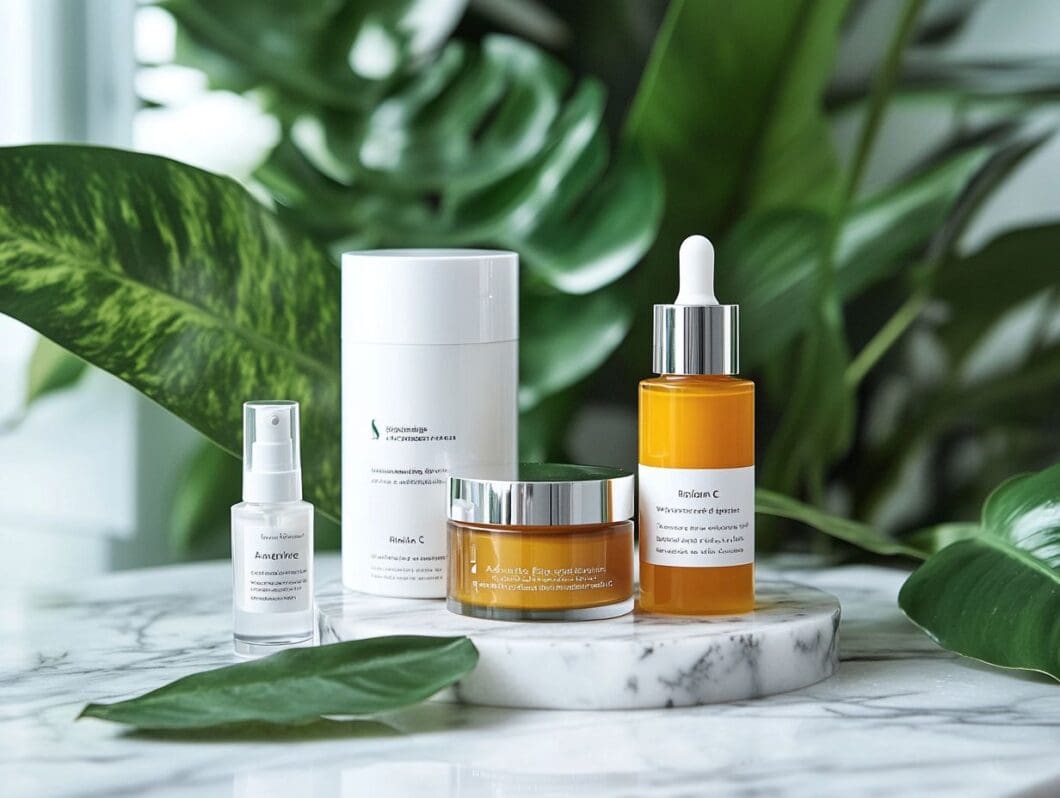As we step into our 30s, our skin begins to reveal the inevitable signs of aging. Understanding these changes is crucial for maintaining a youthful glow.
This article covers key ingredients that can help combat the effects of aging, such as:
- Retinoids
- Vitamin C
- Peptides
- Hyaluronic acid
It also explores how to choose the right products, incorporate them into your routine, and adopt lifestyle changes that support your skin’s health.
Embrace your journey toward timeless beauty!
Key Takeaways:
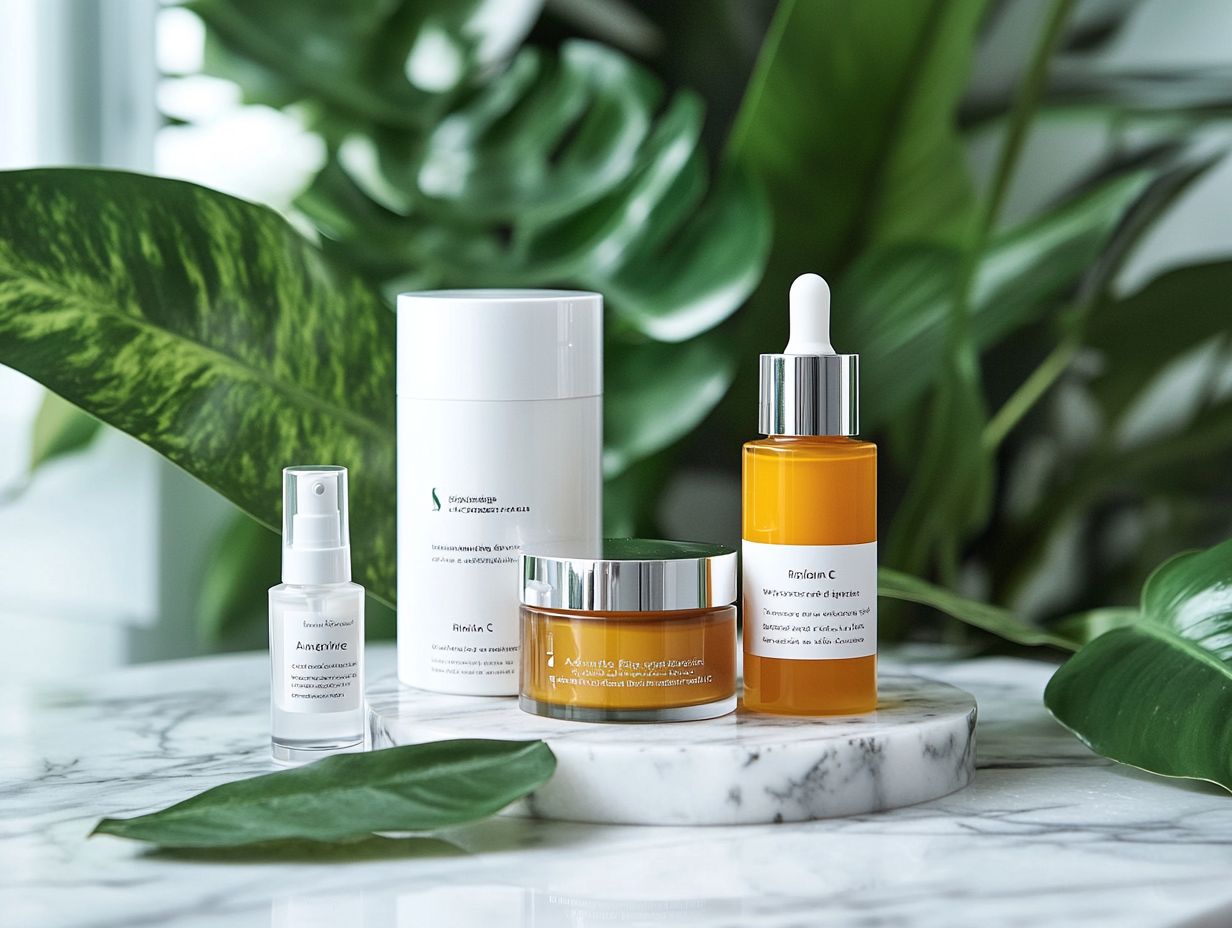
Understanding the Aging Process
Understanding the aging process is essential for maintaining healthy skin as individuals progress through various life stages, particularly into their 30s and beyond. This period frequently introduces noticeable changes, including the emergence of fine lines and wrinkles, decreased collagen production, and other skin indicators that necessitate a comprehensive anti-aging skincare routine.
By acknowledging how skin conditions evolve over time, individuals can adjust their skincare regimens to address their specific needs, thereby ensuring the protection of the skin barrier and the effective enhancement of skin hydration.
How Skin Changes in Your 30s
In one’s 30s, the skin experiences significant changes, including a gradual decline in collagen production. This decline often results in the appearance of fine lines and wrinkles, as well as alterations in overall skin tone. For more information, check out Anti-Aging Ingredients to Start Using in Your 30s.
As the skin begins to lose its youthful plumpness, its texture may become rougher, and moisture levels frequently diminish, leading to a dull complexion. These changes can reduce the skin’s natural elasticity, making it more susceptible to sagging and unevenness.
To address these transformations, it is essential to implement a comprehensive skin care routine. Incorporating gentle cleansers is vital for maintaining the skin’s barrier without stripping away essential hydration, while rich moisturizing face creams can effectively rejuvenate and replenish moisture.
Furthermore, the daily application of broad-spectrum sunscreen is critical, as it protects against harmful UV rays that can accelerate skin aging, thereby helping to preserve its vitality and overall appearance.
Key Ingredients for Anti-Aging
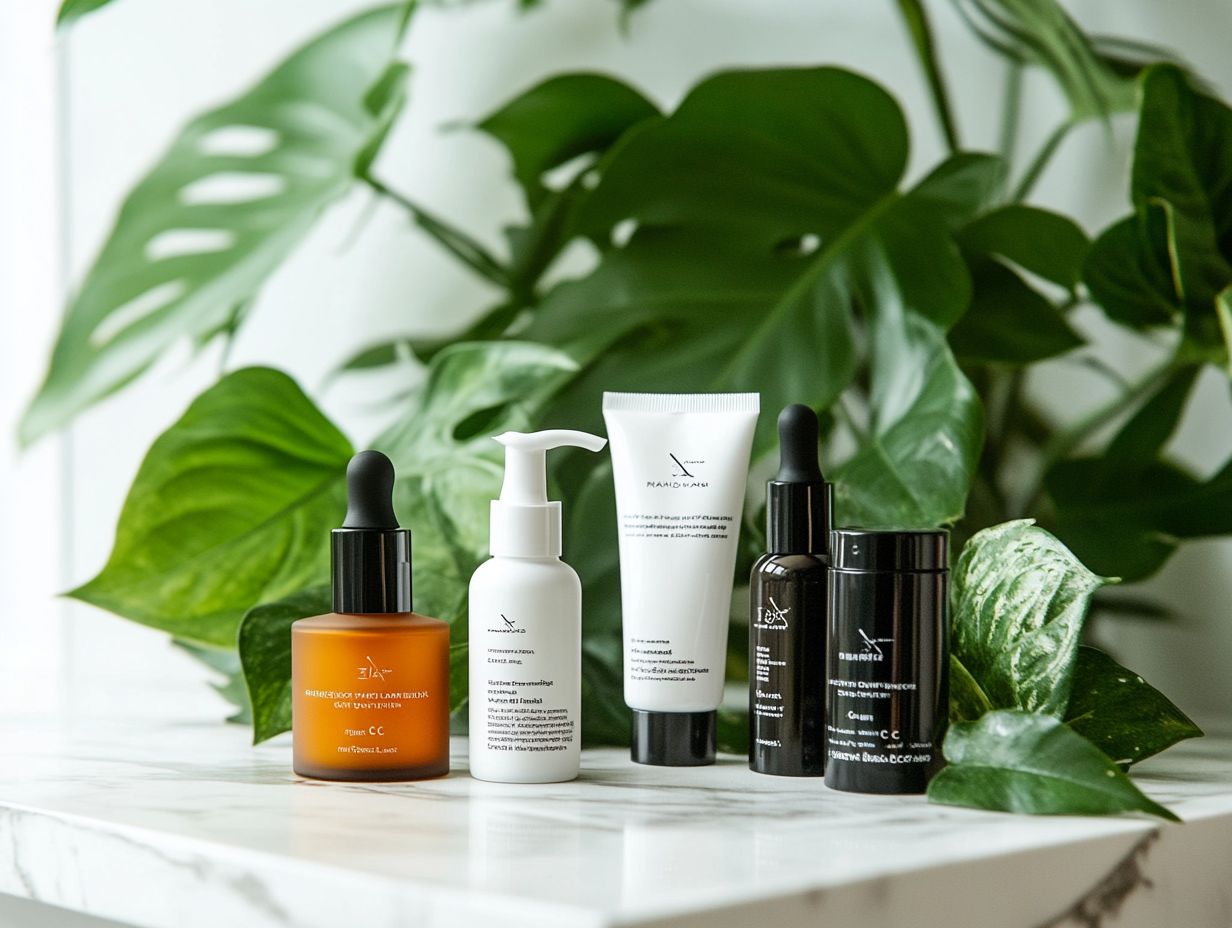
Key ingredients in anti-aging skincare products are essential for addressing visible signs of aging, such as fine lines, wrinkles, and uneven skin tone.
Notable ingredients, including retinoids, vitamin C, peptides, and hyaluronic acid, are recognized for their effectiveness in promoting a more youthful appearance.
Retinoids
Retinoids, including retinol serums, are recognized as effective anti-aging agents due to their capacity to accelerate cell turnover, diminish fine lines and wrinkles, and improve skin texture.
It is important to understand that not all retinoids are equivalent; they vary from over-the-counter options such as retinol, which is less potent, to more powerful prescription forms like tretinoin. Each type is designed to address different skin needs and sensitivities, making it essential to select the appropriate formulation for individual skin types. Users should also be informed of possible side effects, including skin purging, which can temporarily result in breakouts as impurities are eliminated.
To minimize irritation and enhance results, a gradual introduction of retinoids into a daily moisturizing regimen is strongly advised, allowing the skin adequate time to acclimate to these potent compounds.
Vitamin C
Vitamin C is a potent antioxidant that protects the skin from environmental damage and serves as an effective treatment for hyperpigmentation, promoting a brighter and more even skin tone.
It plays a crucial role in collagen production, which is essential for maintaining skin elasticity and firmness as individuals age. This natural protein helps reduce the appearance of fine lines and wrinkles, making vitamin C an essential component in any anti-aging skincare regimen.
When combined with other powerful ingredients, such as vitamin E, the benefits are significantly enhanced; together, they improve skin hydration and provide a protective barrier against external aggressors. This synergy not only revitalizes dull skin but also promotes a clearer, more youthful complexion, enabling individuals to confidently embrace their natural beauty.
Peptides
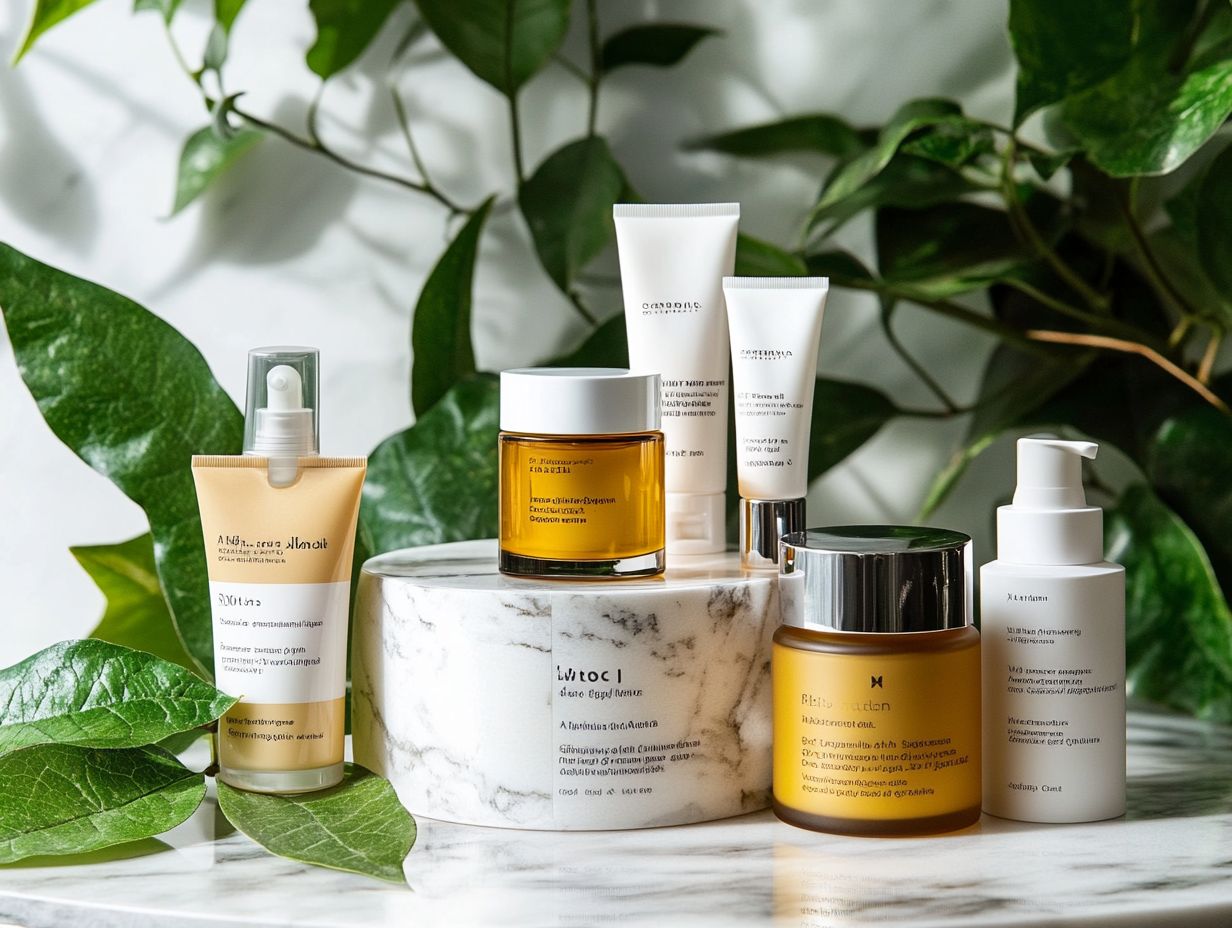
Peptides are small chains of amino acids that play a vital role in stimulating collagen production and enhancing skin elasticity, rendering them critical in anti-aging skincare formulations.
These bioactive molecules communicate with skin cells, prompting them to regenerate and repair, which is essential for preserving a youthful appearance. By effectively penetrating the skin barrier, peptides can improve hydration and promote cellular turnover, thereby reducing the visibility of fine lines and wrinkles. Additionally, their capacity to strengthen the skin’s natural defense mechanisms against environmental stressors further underscores their significance.
For individuals seeking to incorporate these potent ingredients into their skincare routine, serums and creams containing peptides—such as those offered by reputable brands like The Ordinary and Neutrogena—can yield noticeable improvements in skin texture and tone over time.
Hyaluronic Acid
Hyaluronic Acid is a highly effective humectant that attracts moisture to the skin, thereby helping to maintain optimal hydration levels and supporting the skin barrier in its defense against aging.
This mechanism not only contributes to a plump and youthful appearance but also plays a significant role in preventing irritation, making it suitable for all skin types, including those that are sensitive. By retaining moisture, Hyaluronic Acid strengthens the skin’s natural defenses, enabling it to better withstand environmental stressors.
When combined with other anti-aging ingredients such as retinol or vitamin C, Hyaluronic Acid enhances their efficacy, resulting in a more comprehensive approach to skincare. Collectively, these components work synergistically to address issues such as dryness, fine lines, and uneven texture, thereby maximizing the overall benefits of a daily moisturizing regimen.
Choosing the Right Products
Selecting appropriate skin care products is crucial for establishing an effective anti-aging skin care routine tailored to individual skin types and concerns, particularly for those with sensitive skin.
Factors to Consider
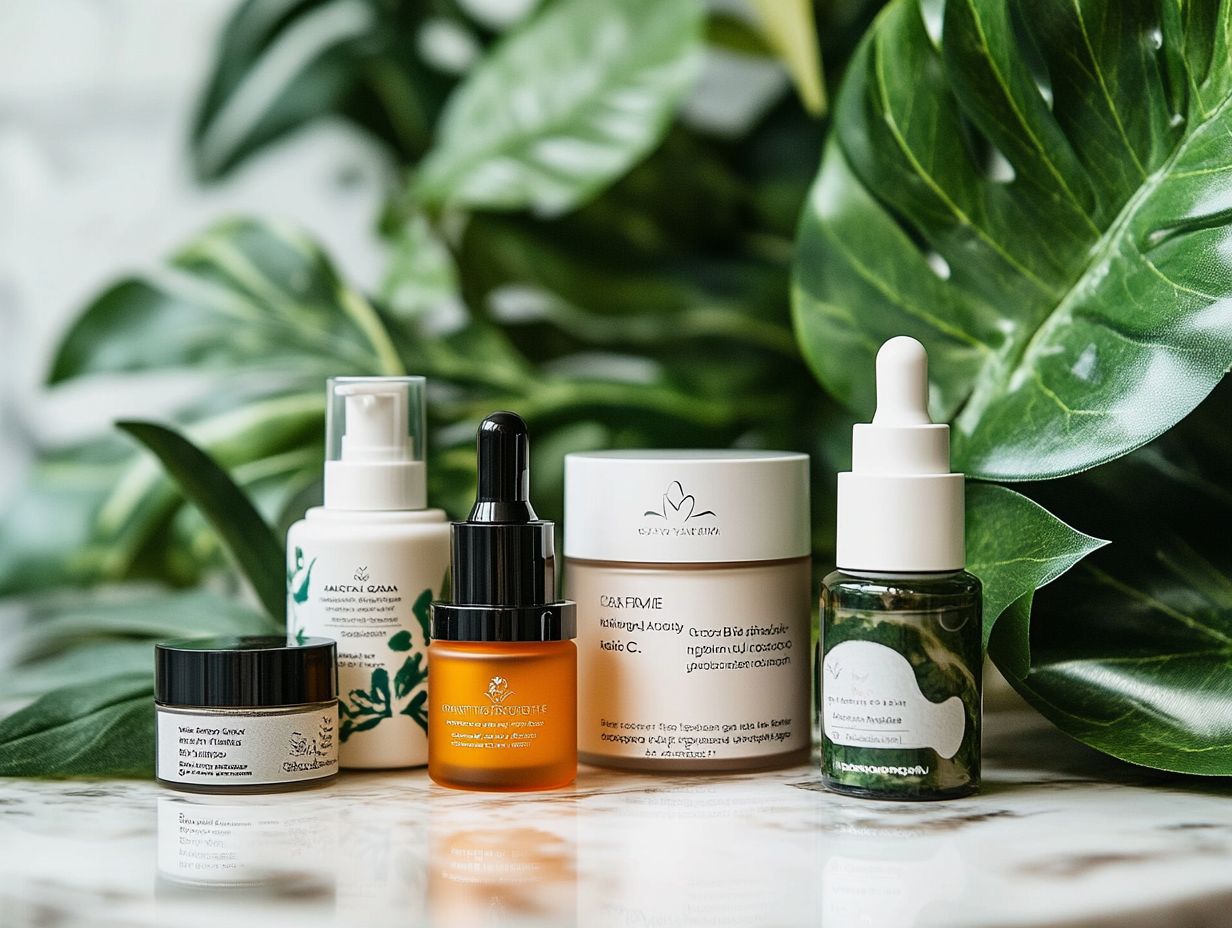
When selecting skincare products, it is essential to consider factors such as individual skincare needs, ingredient safety, and the reputation of the cosmetic brands being considered.
Along with these initial factors, a thorough assessment of ingredient labels is crucial. By taking the time to examine the components, individuals can identify potential irritants or allergens that may not be suitable for their specific skin type. Conducting a patch test on a small area of skin can provide insight into how well a product may react before broader application.
Collaborating with a skincare professional can further enhance this process. They can assist in developing a personalized treatment plan that aligns with individual concerns and goals, ensuring that the selected products are both effective and compatible with the unique needs of the skin.
Incorporating Anti-Aging Products into Your Skincare Routine
Incorporating anti-aging products into a skincare regimen necessitates a careful consideration of the recommended steps and frequency of application. This approach is essential to maximize the benefits of these products while ensuring the overall health of the skin.
Recommended Steps and Frequency
For an effective anti-aging regimen, it is essential to establish a routine that includes key skincare practices, such as using a gentle cleanser, applying a retinol serum in the evening, and following with a moisturizing face cream during the day.
Incorporating weekly exfoliation can aid in the removal of dead skin cells, thereby enhancing the absorption of subsequent products. The daily application of sunscreen is crucial, as it plays a significant role in preventing additional damage caused by UV rays.
For individuals with sensitive skin, it is advisable to introduce new products gradually and conduct patch tests to assess reactions. Adjusting the frequency of retinol usage based on skin tolerance is also vital; it is recommended to begin with application two nights per week and gradually increase as the skin adapts.
Monitoring the skin’s response will guide necessary modifications, ensuring an effective yet gentle approach to the skincare regimen.
Other Anti-Aging Strategies
Along with utilizing topical anti-aging products, implementing complementary dietary and lifestyle modifications, as well as considering professional treatments, can substantially augment efforts to maintain healthy skin.
Diet and Lifestyle Changes
Incorporating a diet rich in antioxidants and maintaining adequate hydration is essential for achieving and sustaining healthy skin, particularly as one ages.
A focus on vibrant fruits, such as berries and citrus, provides essential vitamins that combat free radicals, while leafy greens supply important minerals and hydration. Healthy fats found in avocados, nuts, and fish not only help to keep the skin moisturized from within but also promote elasticity.
Along with nutrition, adopting beneficial lifestyle habits, such as regular exercise, enhances circulation, thereby delivering vital nutrients and oxygen to skin cells. Furthermore, sufficient sleep is crucial for fostering repair and regeneration.
Collectively, these choices constitute a holistic approach to skin health that enhances the resilience and luminosity of the skin over time.
Professional Treatments
Professional treatments such as chemical peels, microdermabrasion, and laser therapy offer significant anti-aging benefits by targeting deeper layers of the skin and stimulating collagen production.
Each of these treatments presents distinct advantages, with varying levels of effectiveness based on individual skin concerns. For example, microdermabrasion is recognized for its minimal downtime and gentle exfoliation, making it a preferred option for those seeking a quick refresh. Conversely, laser therapy typically yields more pronounced results but may necessitate a longer recovery period.
Consultation with skincare professionals is essential, as they can develop a personalized skincare plan that incorporates these treatments. This ensures optimal results while taking into account one’s lifestyle and skin type.


